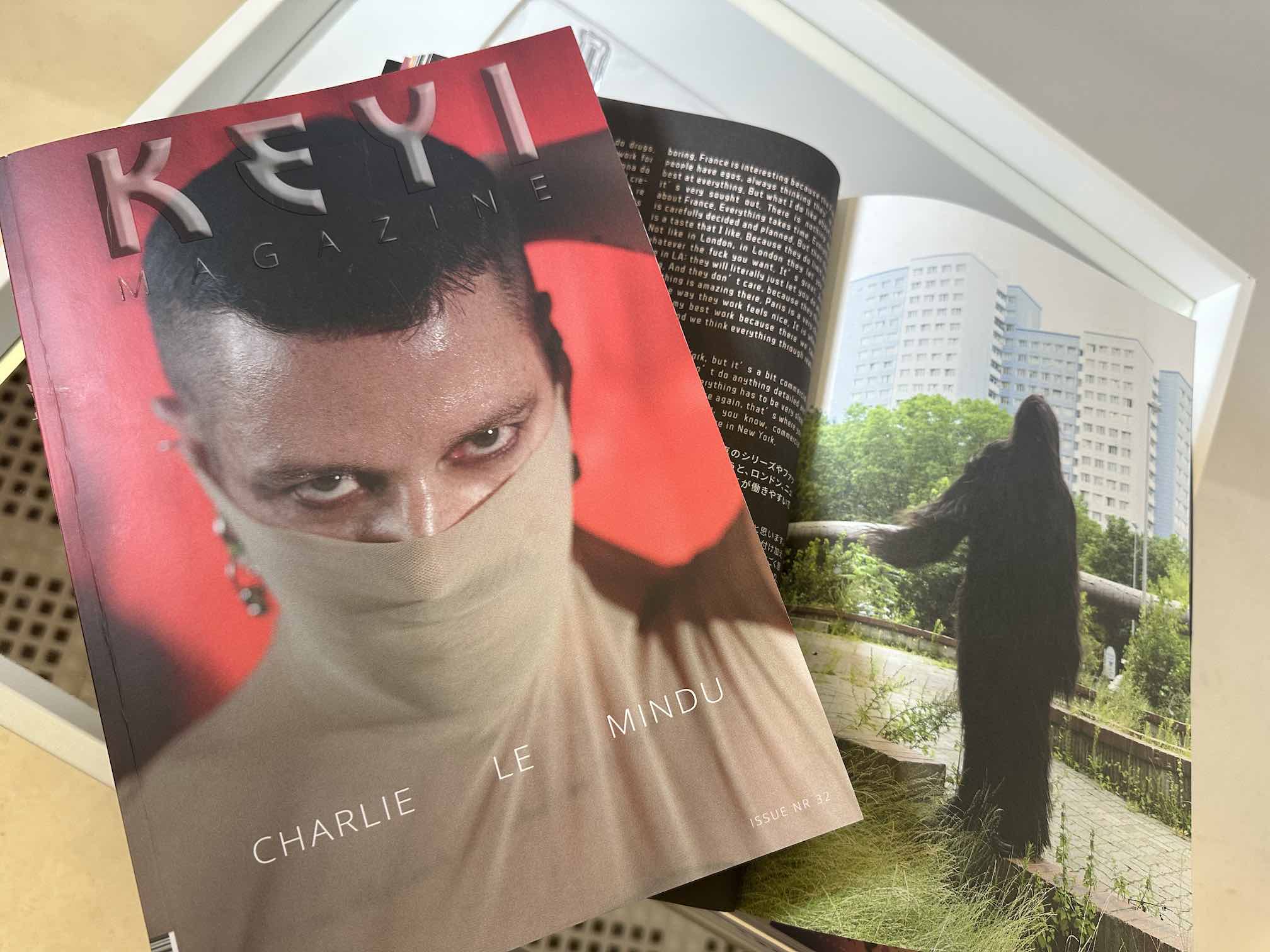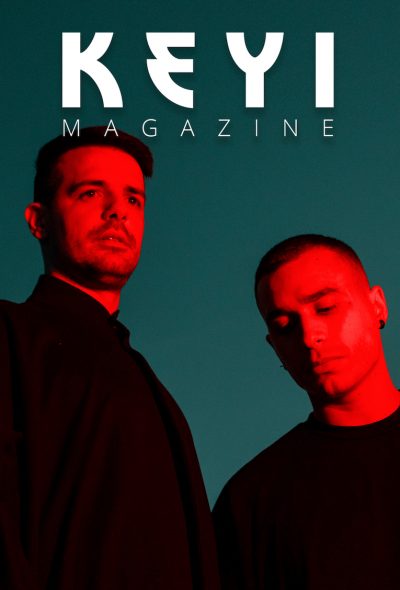Taipei’s AW25 Fashion Week, held March 27th through the 30th, explored the future of fashion through a lens of uncompromising sustainability.
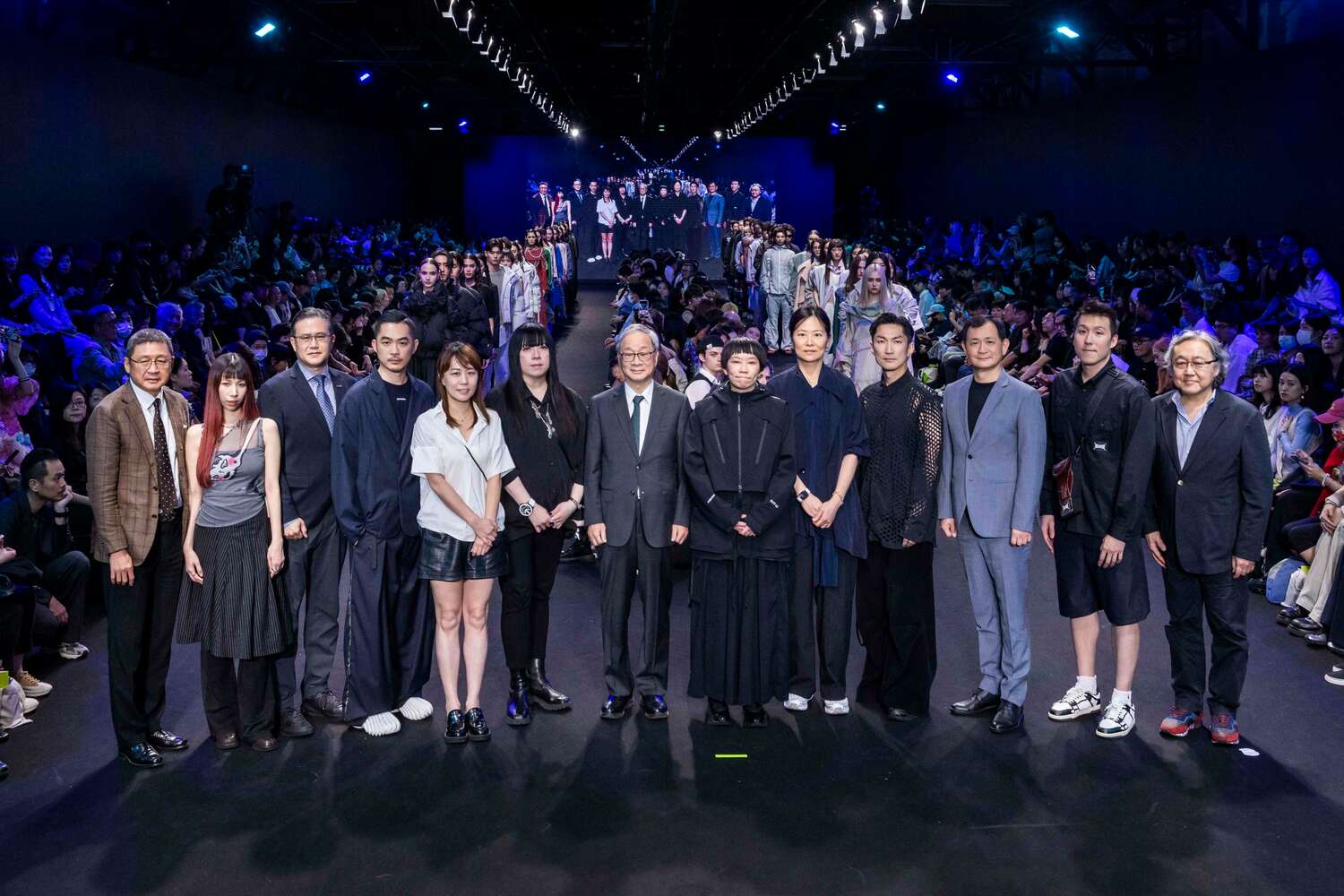
Taipei Fashion Week was a suggestion to the industry at large that emerging fashion week hubs– like Taipei and Berlin– are serious about sustainability. The theme of the week was “Endless Fashion”, championed by leading Taiwanese designers and the country’s textile industry. At the event’s opening ceremony, Minister of Culture Li Yuan carried a bag made of Taiwan’s recycled pineapple leaf fiber, advocating for circularity in the process– from materials, production, sale, and use.
Taiwan is finding its niche in fashion through storytelling and sustainability. The singular power that fashion holds in conveying a story is unique to the medium. In centering sustainability through materials, styling, and narrative on the runway, Taiwanese designers urge that our future can be bright if we can care for the Earth in the present.
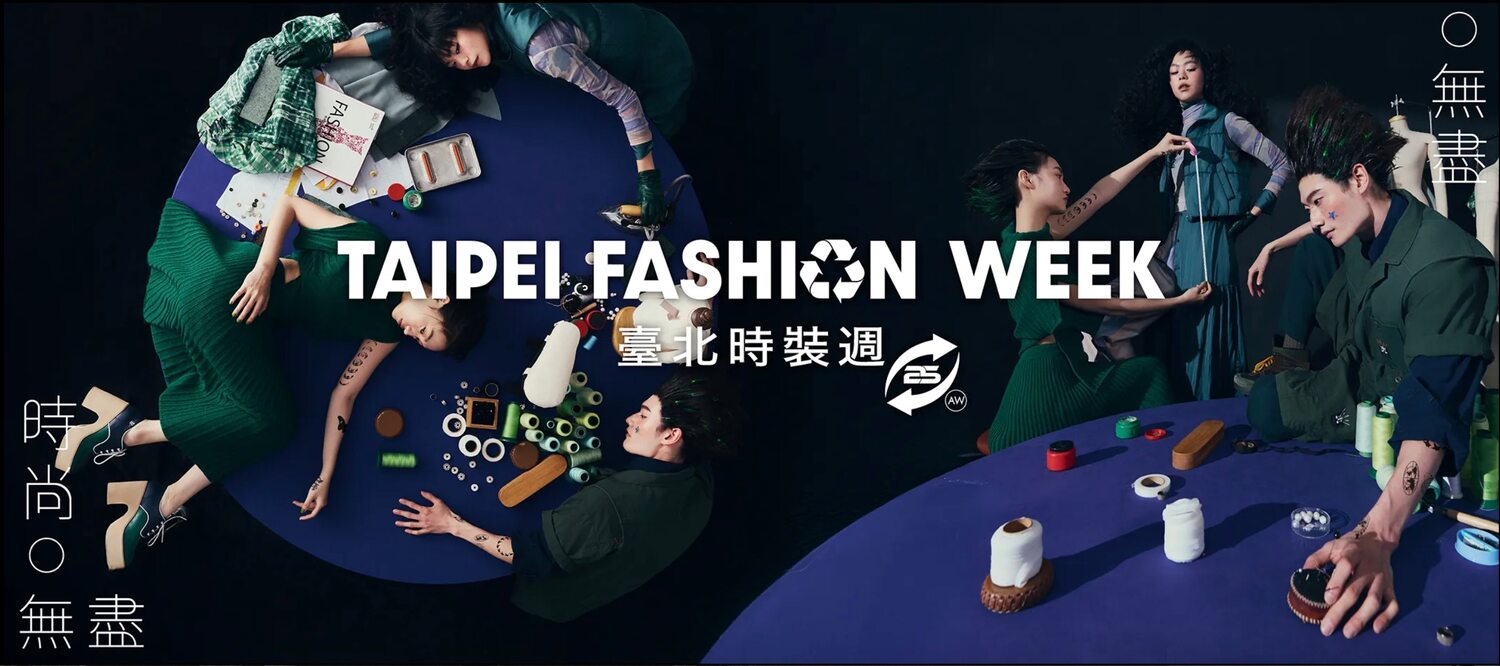
Promotional images for the event show models dressed in sustainable garments and surrounded by various circular symbolic objects. The objects—pattern-making templates, cutting boards, sketches, fabric swatches, thimble rings, stitches, and pin cushions—symbolize the steps of clothing production, and the importance of sustainability in each step of the process.
Claudia Wang
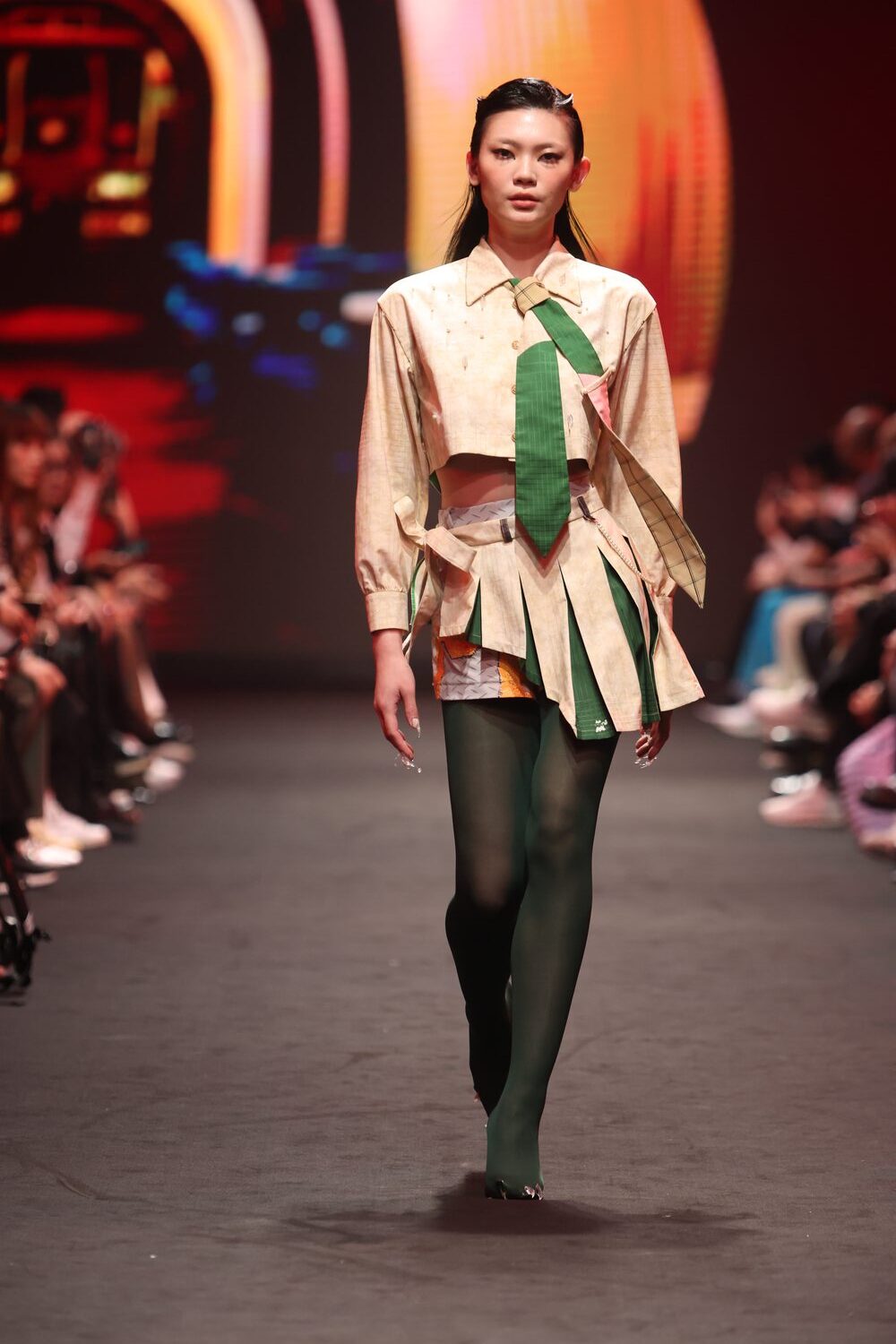
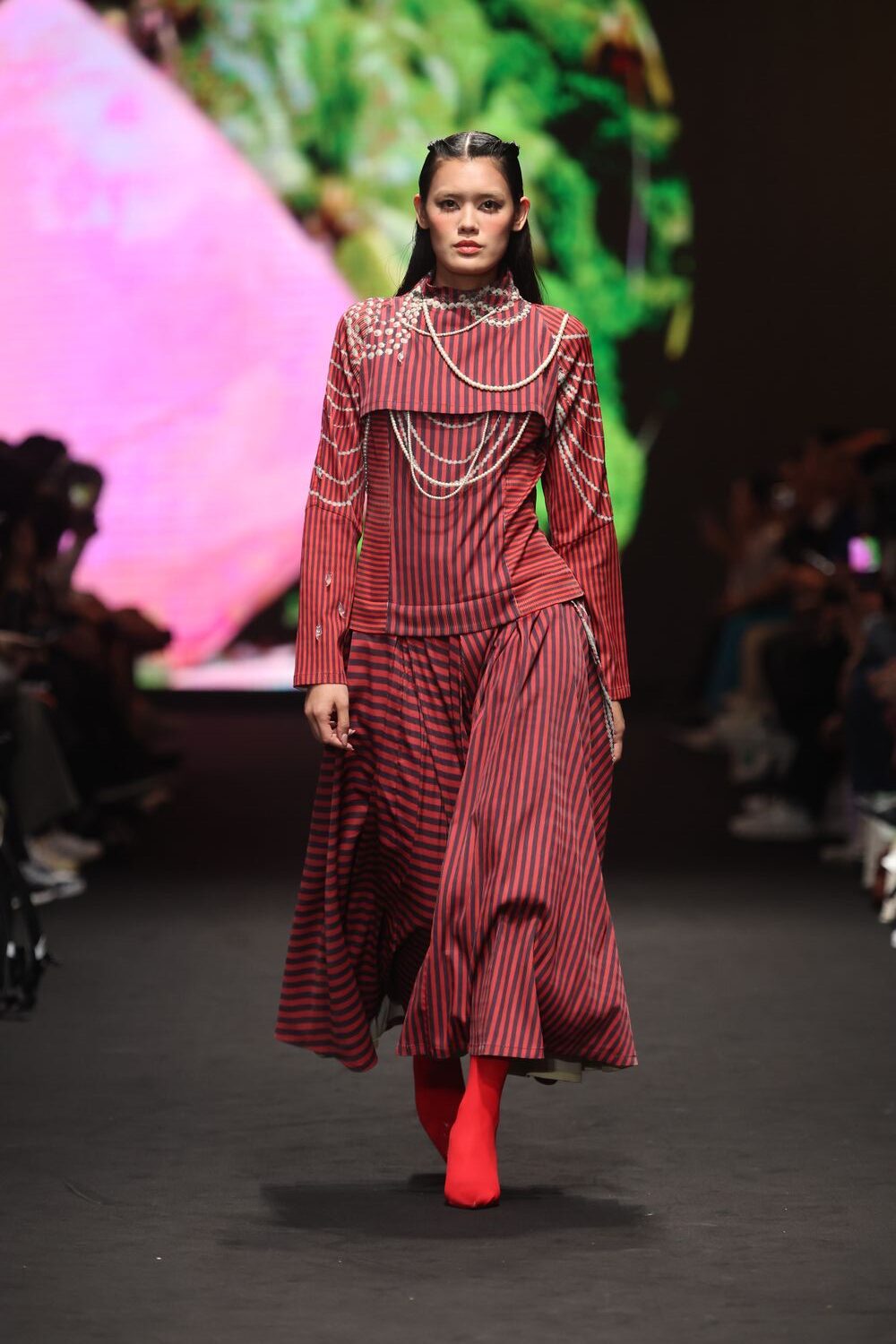
Designer Claudia Wang displayed sustainability through an elevated take on upcycling. Her runway showcased sustainable designs that mixed fabrics and patterns to suggest a DIY approach to fashion. Wang uses vintage accessories and recycled poly/plastic yarns with mixed-material prints. Instead of relying on plain fabrics to convey eco-consciousness, this collection played with color, pattern, and maximalism through sustainable textiles and styling.
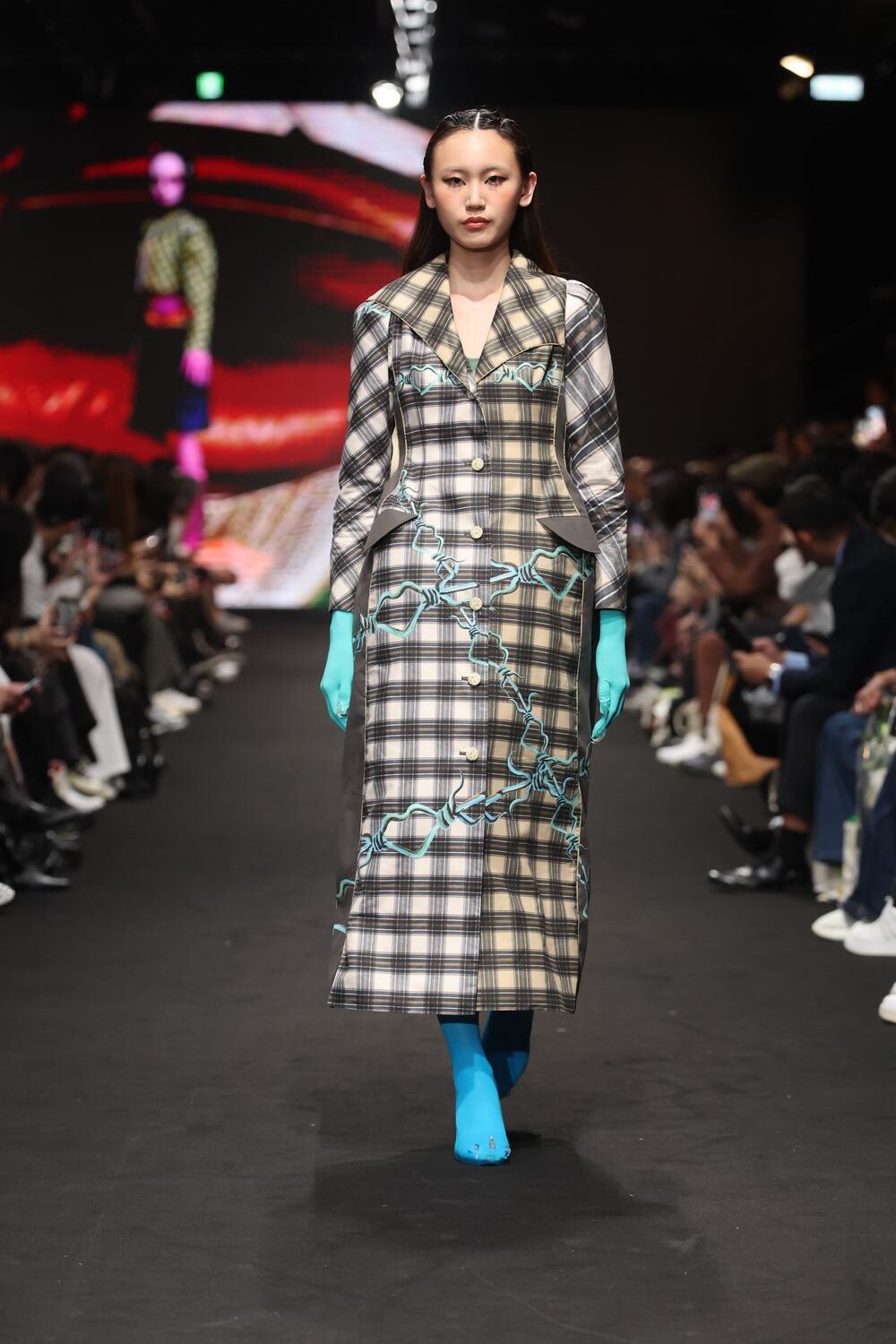
UUIN
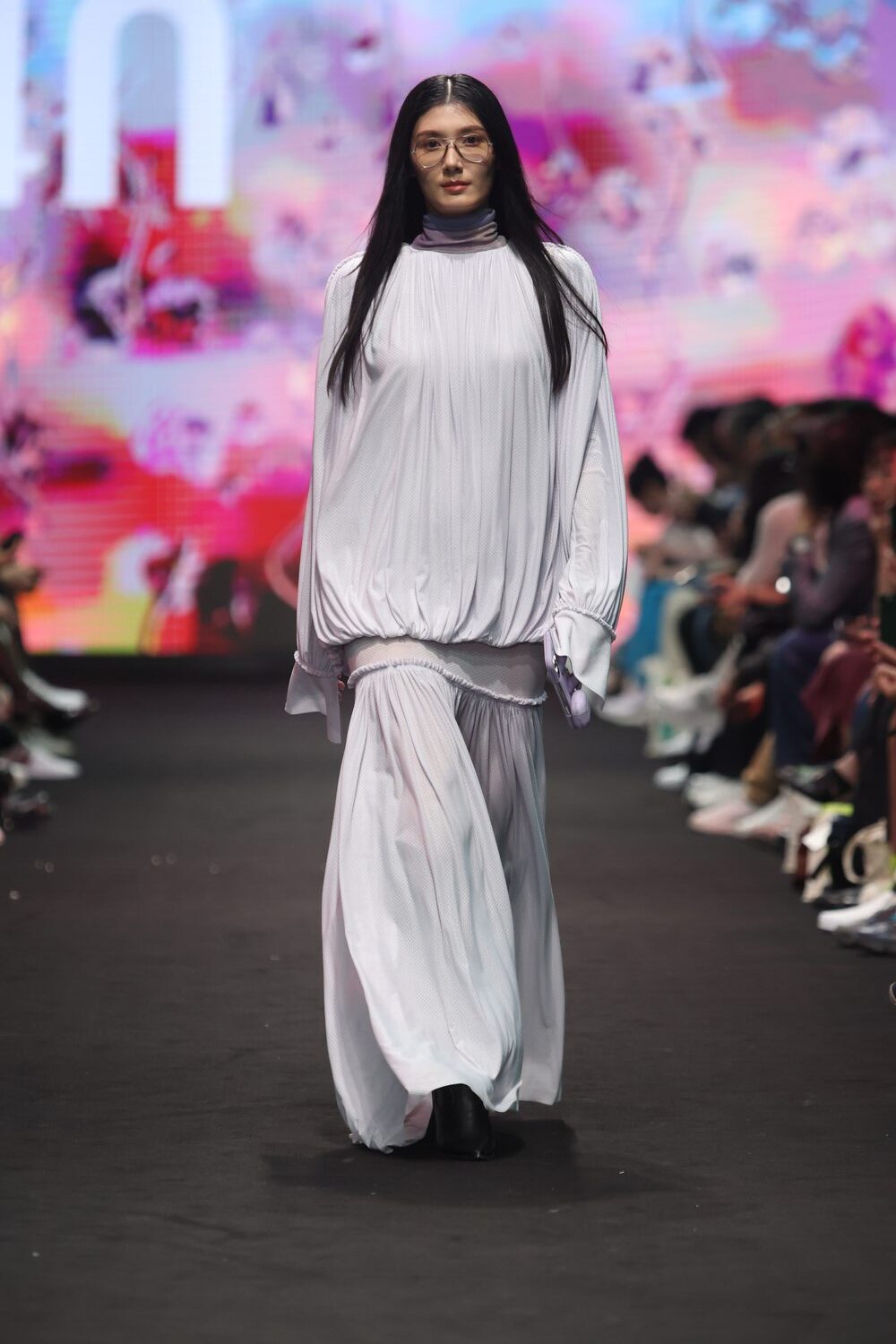
UUIN presented its AW25 collection “Le Port,” at the event’s opening ceremony. Creative Director Tzutsao Liu, dedicated the collection to his hometown, Keelung. Referencing works by Taiwan’s first watercolor painter, Ni Jiang-huai, the runway payed homage to the city’s rich history. The brand uses 100% recycled materials, is animal friendly, and minimizes overproduction. This collection paid respects to the past, while also using production techniques that serve the future.
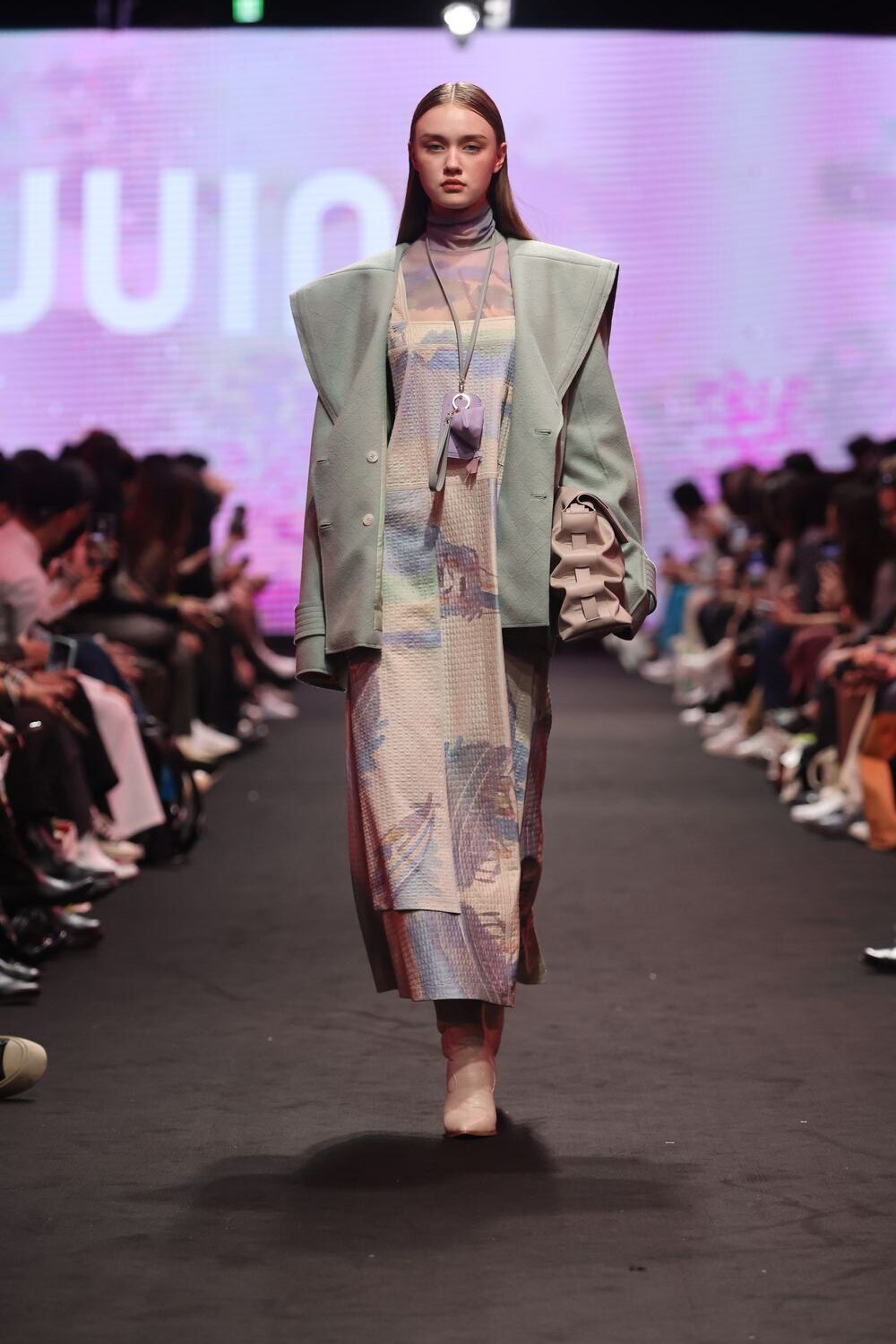
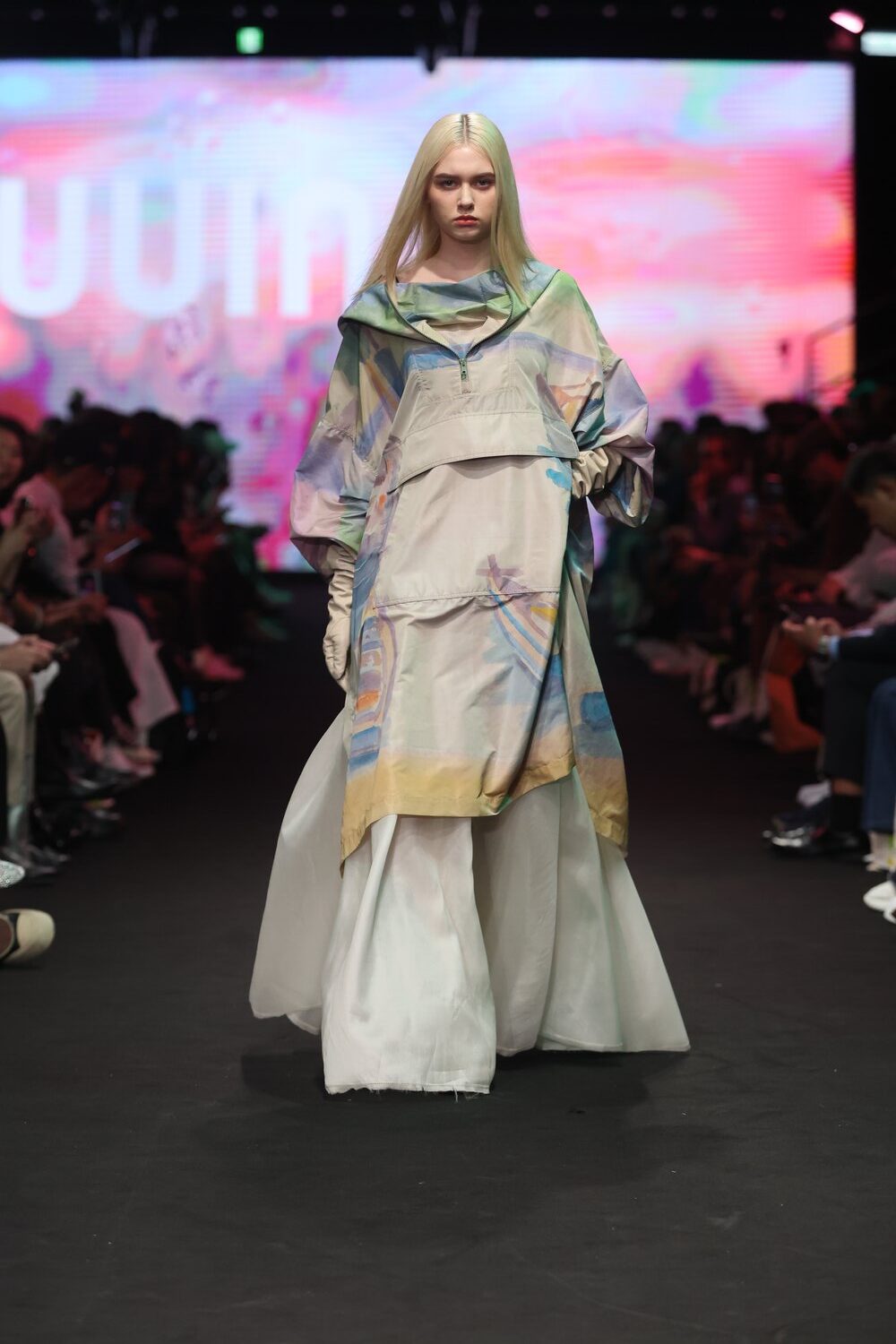
The pastel garments were light and flowy, moving down the runway like whispy memories.
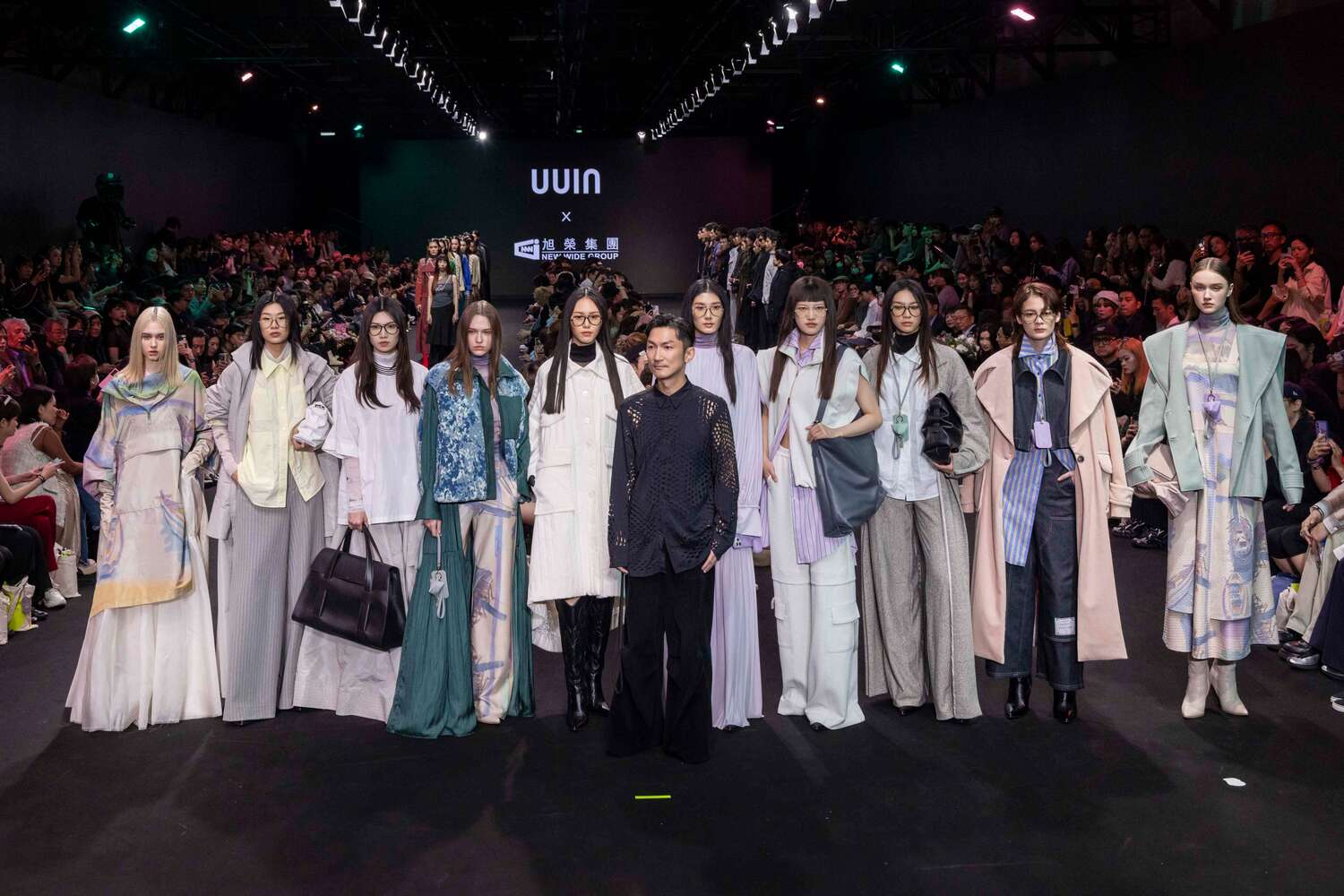
DYCTEAM
DYCTEAM brought its “Prime” collection to the runway, celebrating its 13th year of fashion. In Asian culture, the number 13 represents the cycle of life, continuity, and possibility. This inspiration from the “Prime” number perfectly represents the brand’s chic, circular approach to urban fashion.
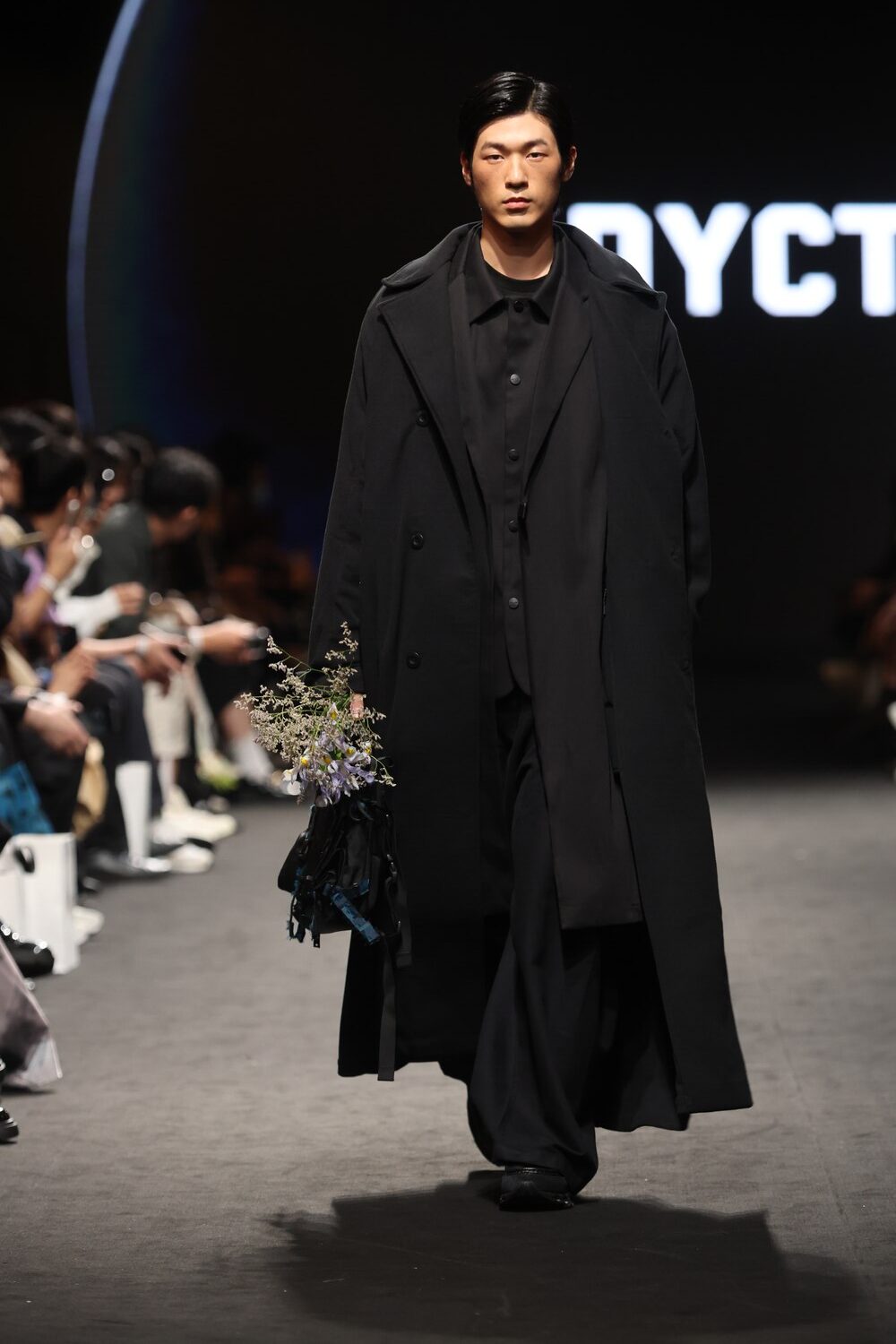
The brand works with Ocean Recycled Yarn and waste gas recycled yarn (FENC®TOPGREEN®Bio3), along with a single-material, high-elasticity fabric. The brand pairs materials like these with expert tailoring, resulting in a sleek and sustainable collection.
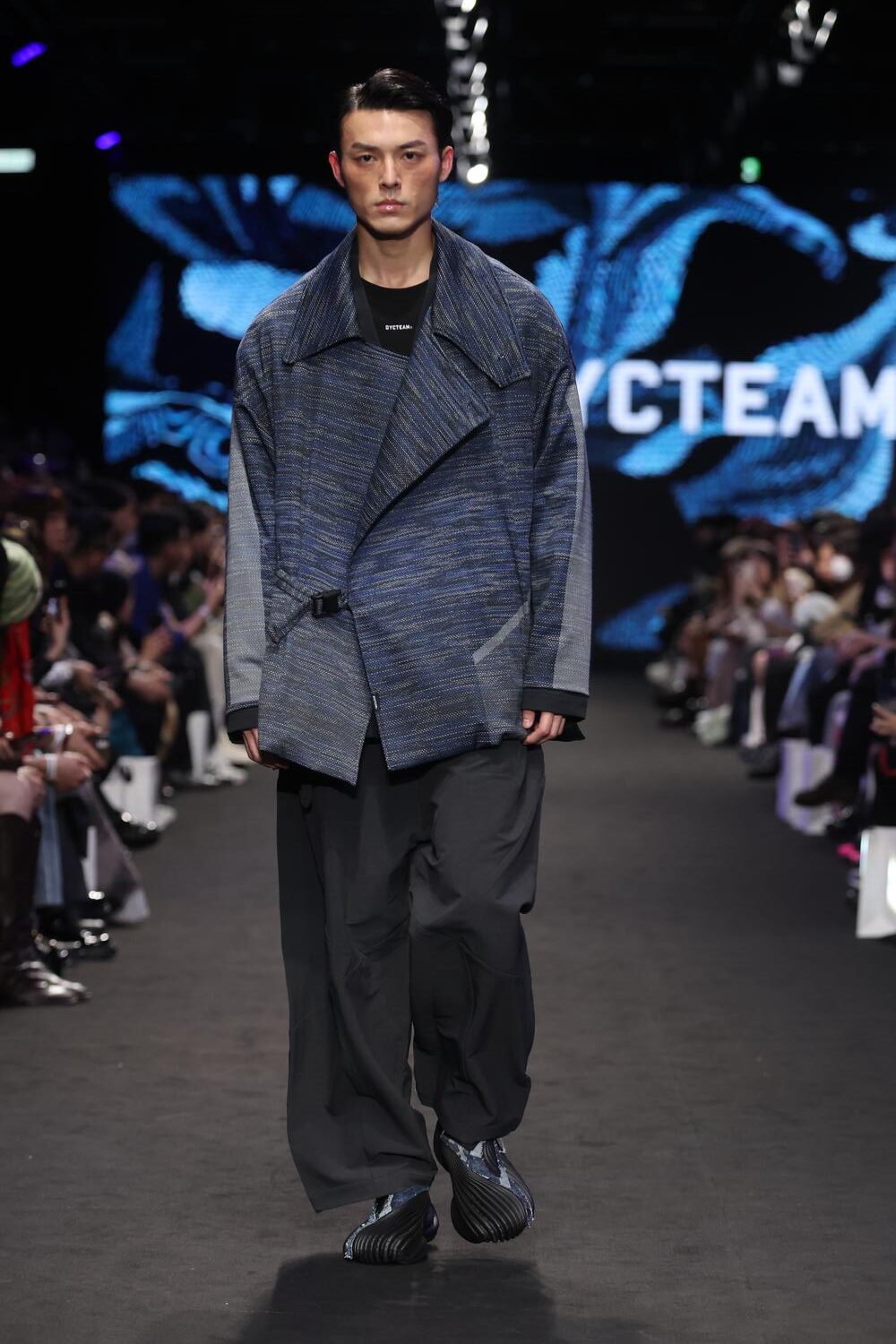
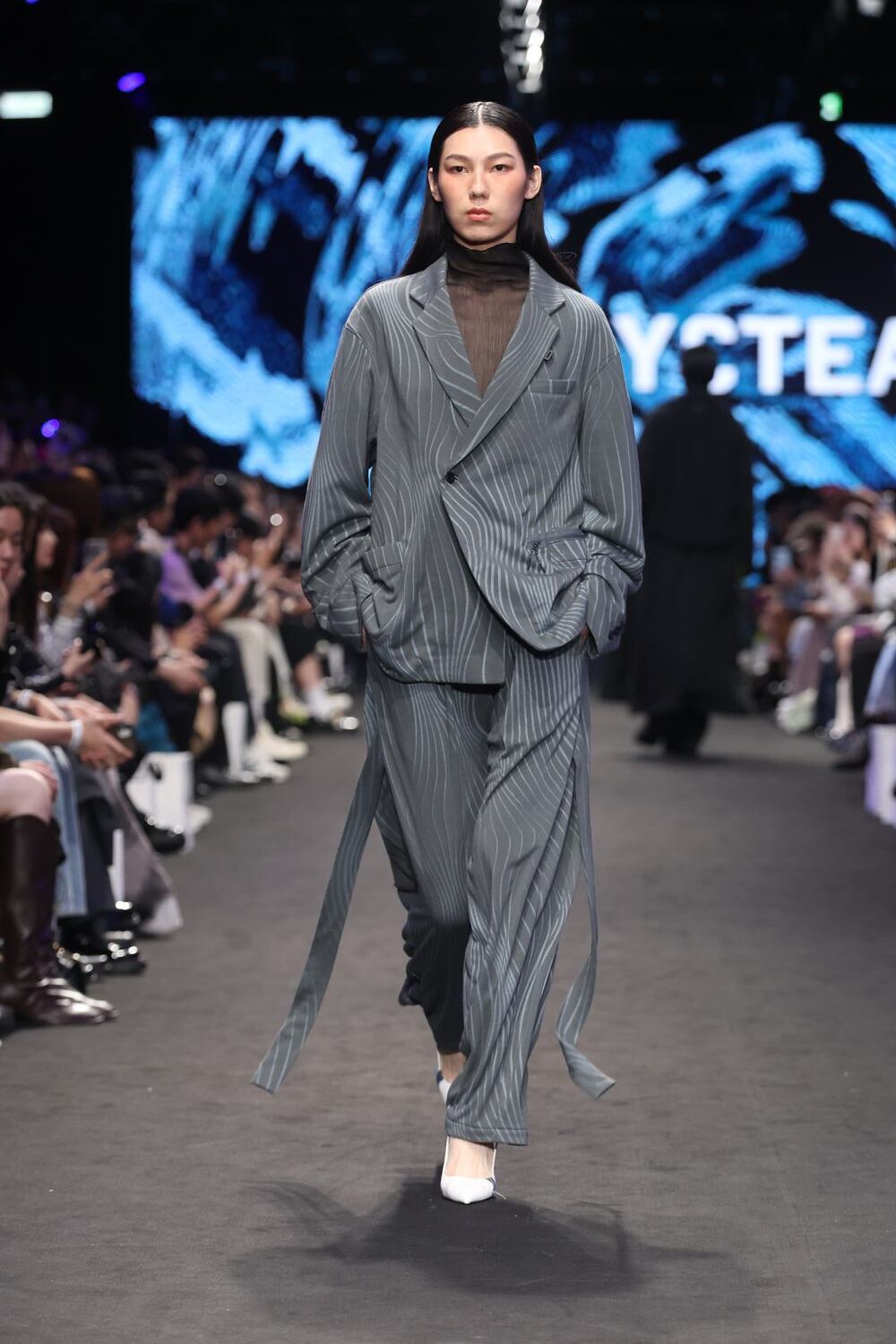
WEAVISM
WEAVISM introduced their AW25 collection at fashion week, featuring workwear-inspired pieces that incorporated imagery from the Japanese fighting game “City of the Wolves”. The runway blended American military influences, boxing-glove accessories, and Taiwanese street-style aesthetics to create a dynamic and powerful collection.
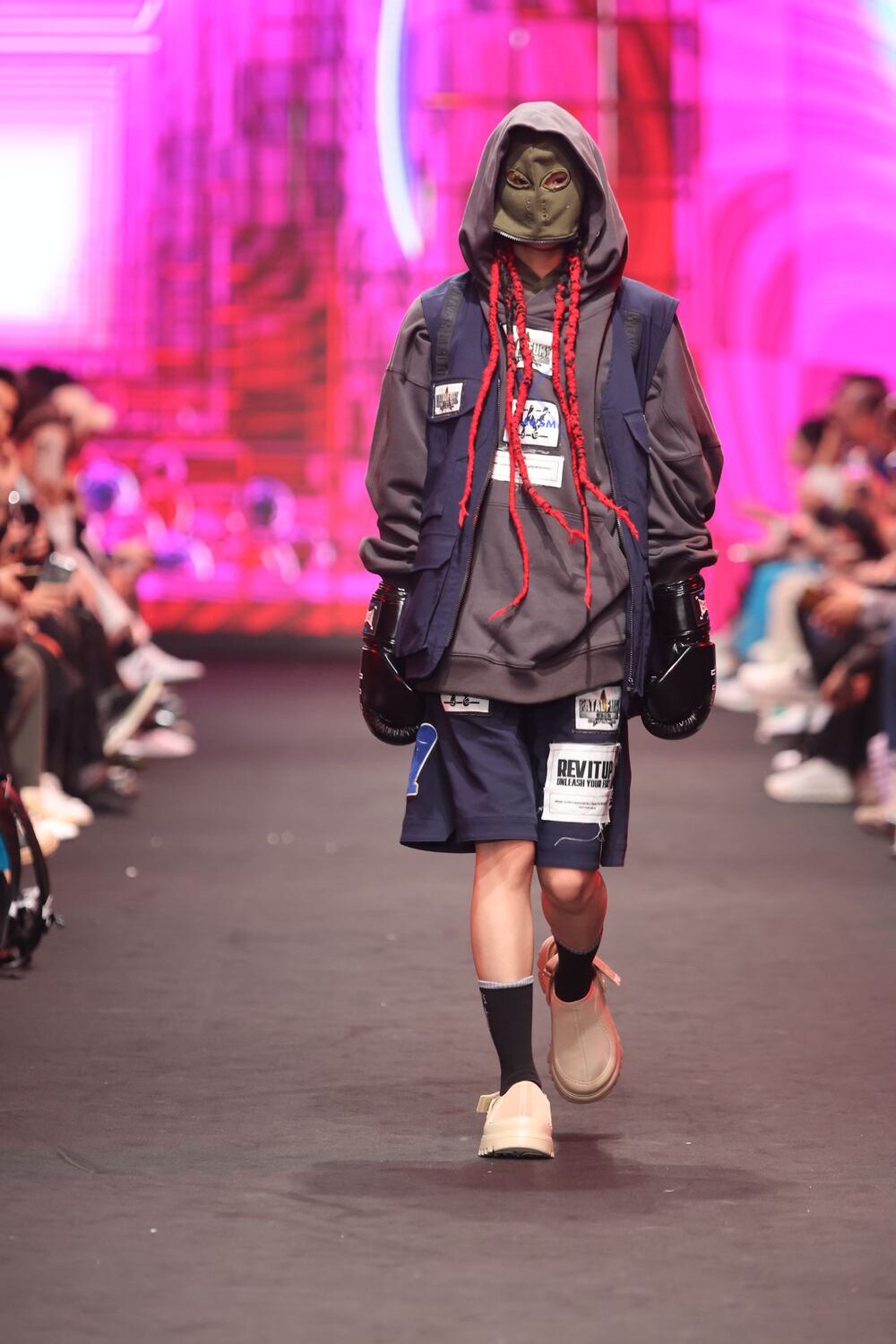
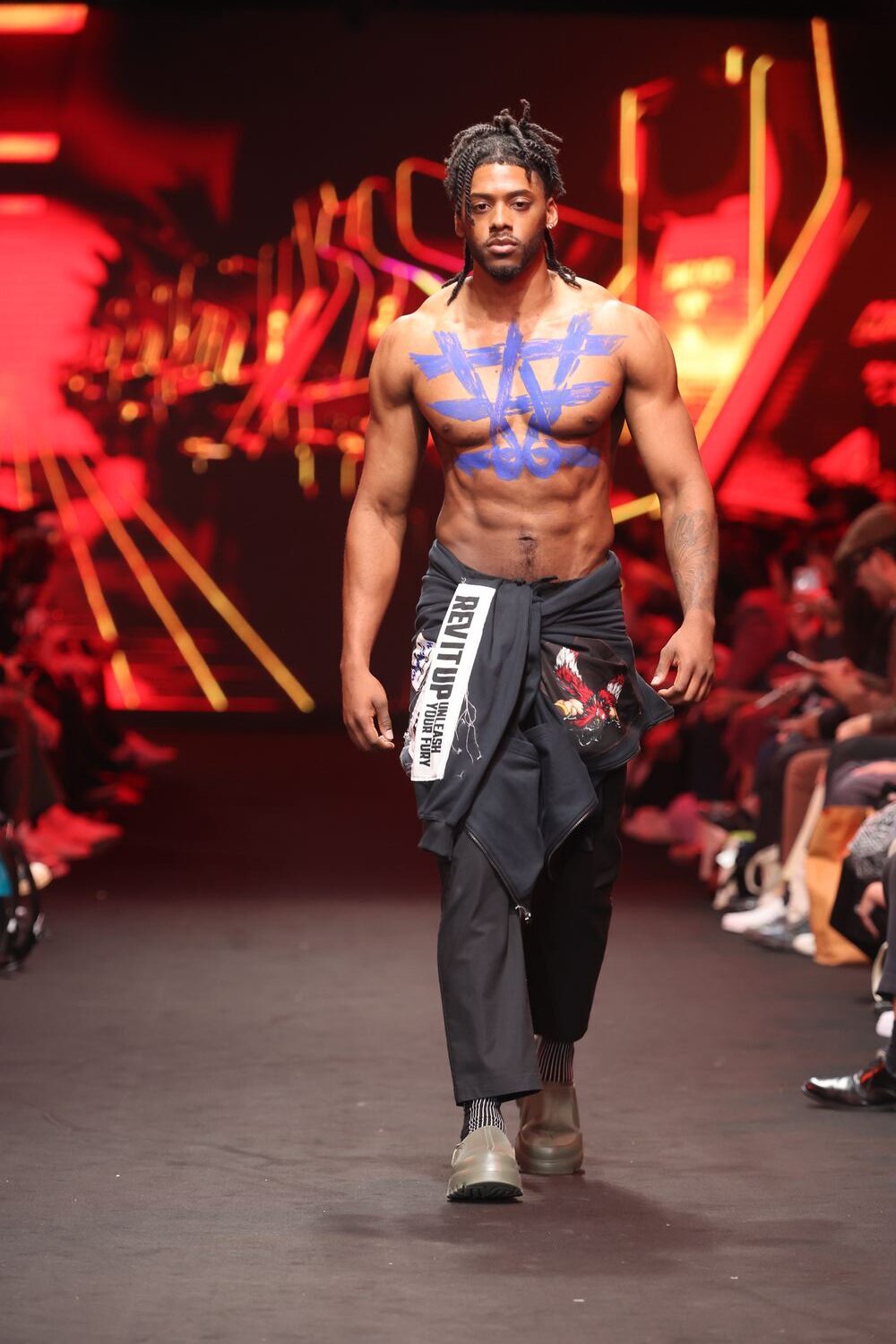
Sustainability is at the core of the label. In 2020, it created an independent laboratory geared towards waste reduction, and this season, made accessories like zippers, chain teeth, and fabric straps, from PET recycled fibers. Sustainable techniques in the dyeing and finishing processes further reduce energy waste.
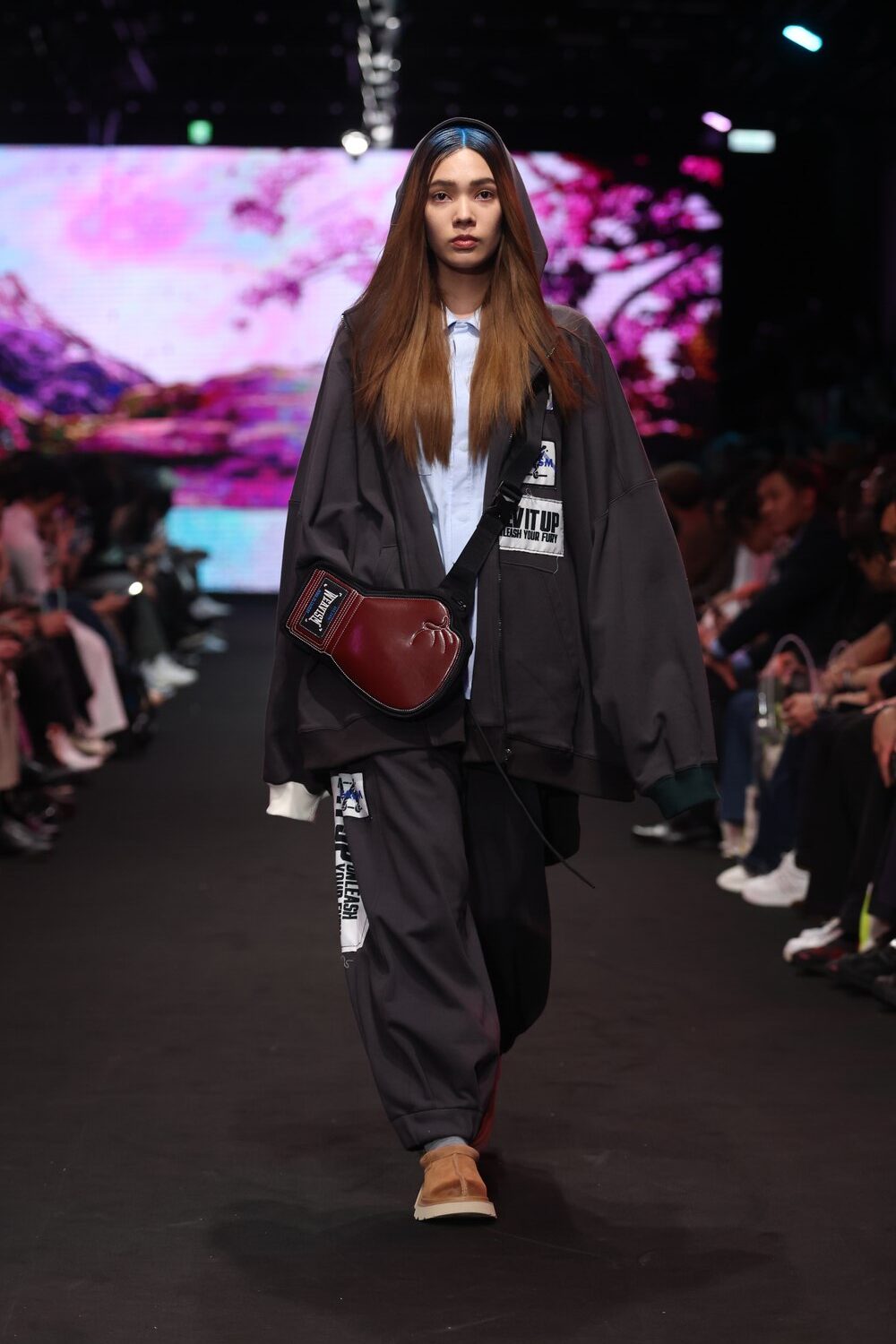
Gioia Pan
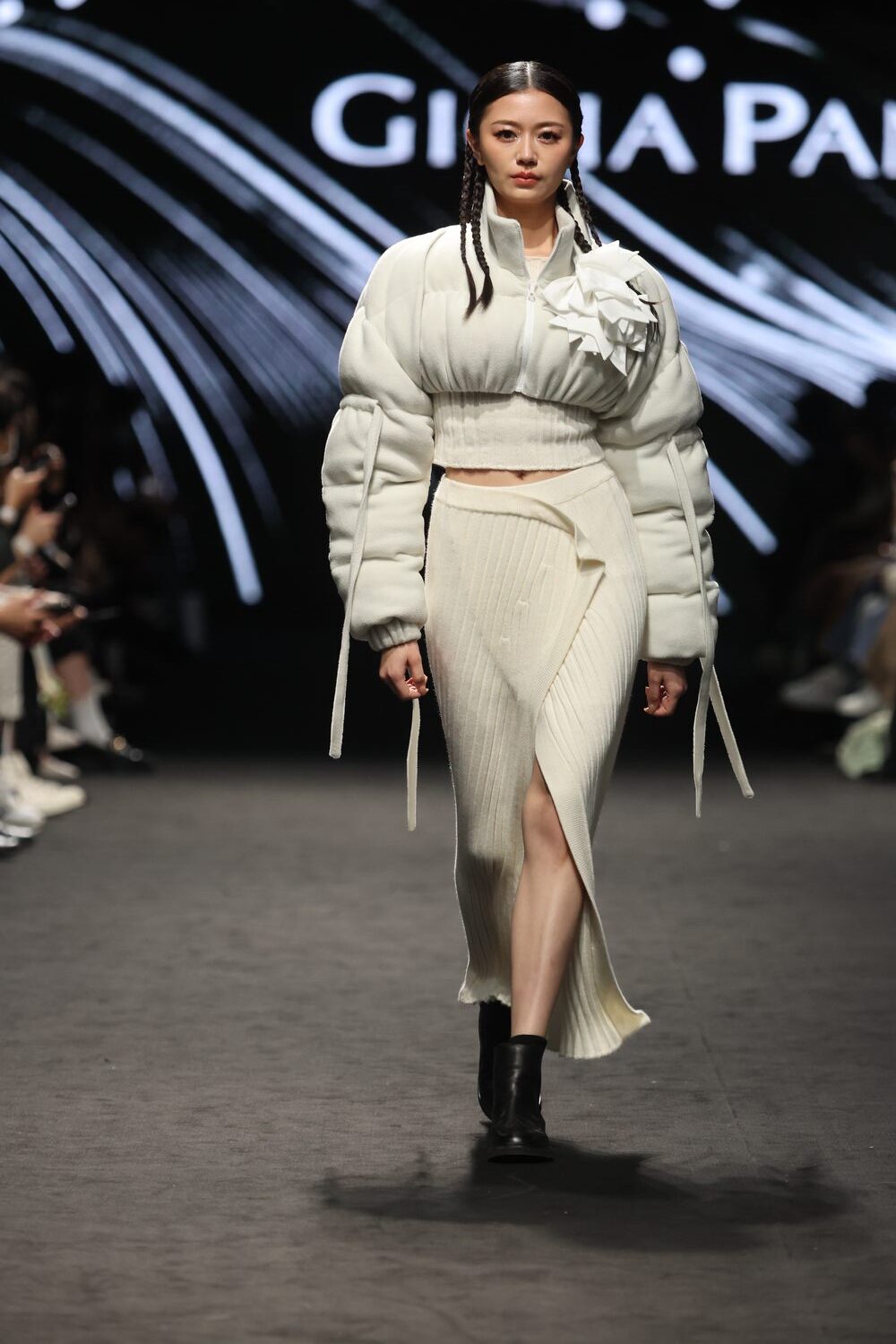
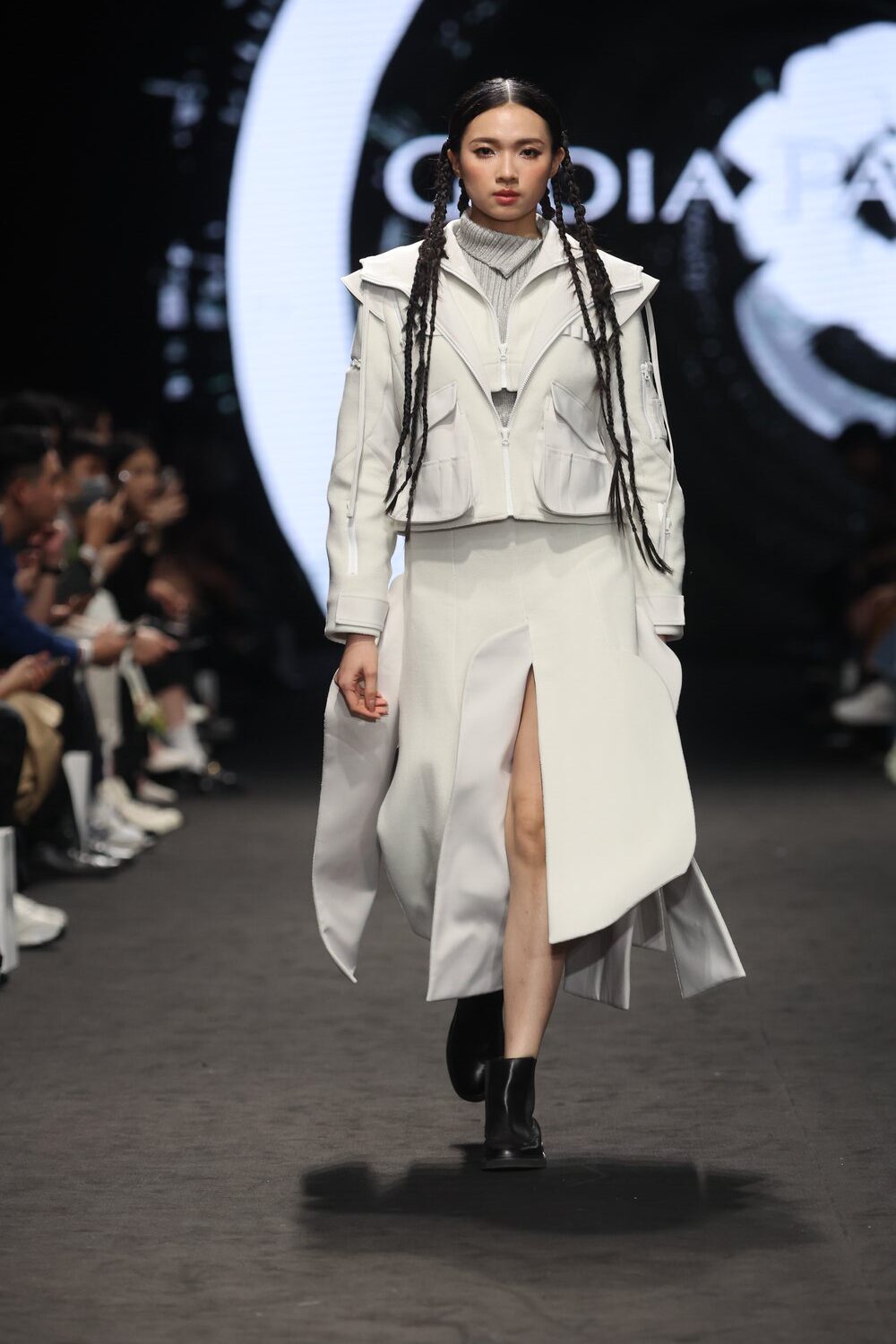
Gioia Pan sent expertly-tailored, structural garments down the runway for her highly anticipated AW25 collection. Pan was christened the of “Queen of Knitwear” for her skillfully made designs, and was honored with the Designer Award at China Fashion Week in 2014.

The brand utilizes recycled polyester fibers and regenerated yarns that allow for elasticity, breathability, and durability. These, paired with precision knitting techniques and three-dimensional weaving help to minimize fabric waste. The workable nature of knit fabrics allow for fluid silhouettes and sculptural tailoring. The brand’s monochromatic, subversive, and buildable designs are cause for excitement towards the future of sustainable fashion.
oqLiq
oqLiq introduced an effortlessly cool, minimalistic street-wear collection to Taipei Fashion Week. The sporty, futuristic designs hinted at a prosperous future, made possible by sustainability in the present.

The brand partnered with Shin Kong Textile to convert discarded clothing fibers and textiles into new material. Through this process of regenerating old textiles, energy and memory are incorporated into new garments. In this way, sustainability becomes more than a concept, and can allow us to understand our future as informed by the past. Shin Kong Textile suggests “Let the end of one garment become the beginning of another.”
This collection is bolstered by texture and tailoring, setting a new standard for athleisure. The clothing is form-flattering in a genderless way, urging for self-expression without relying on body-type.
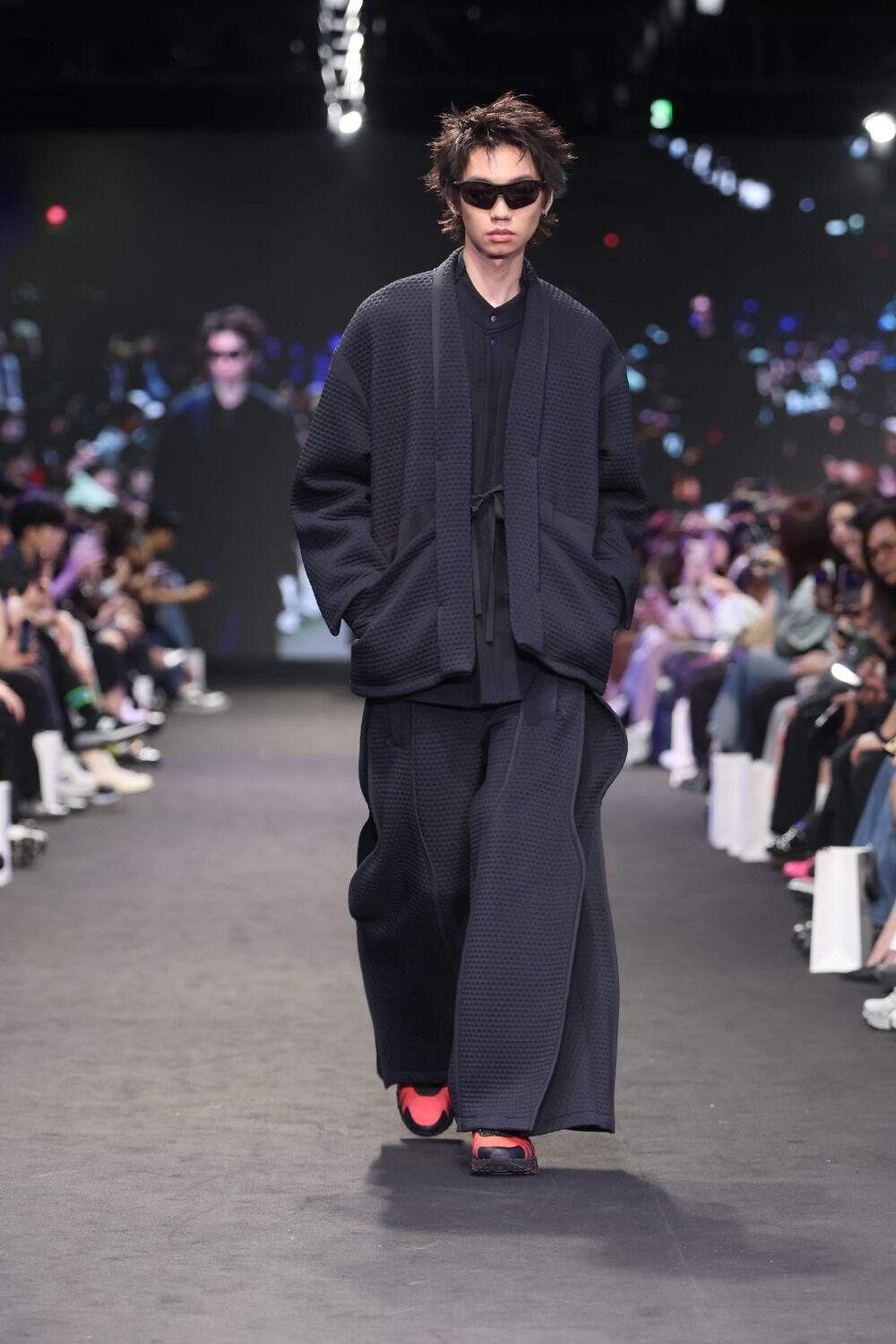
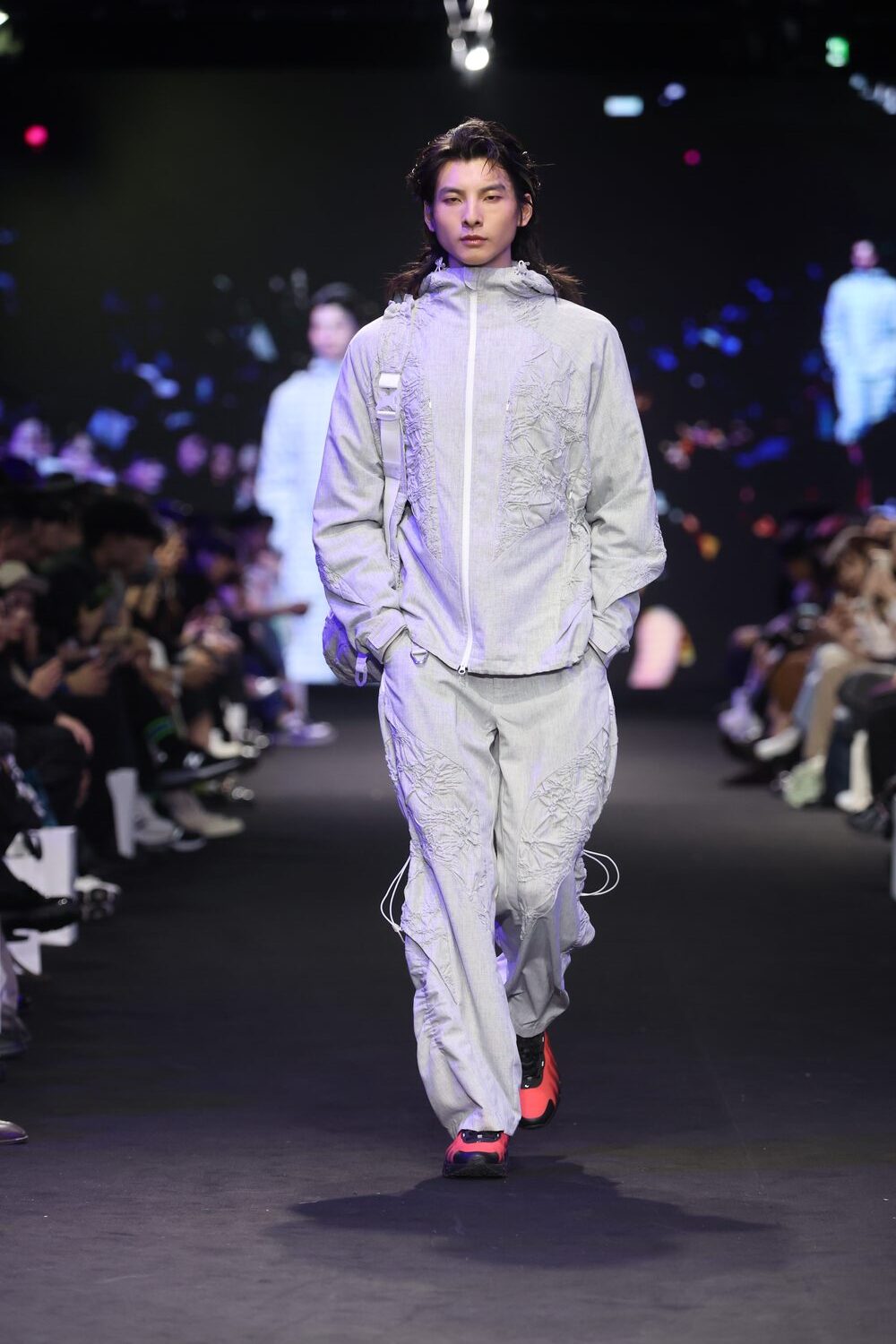
Taipei Fashion Week was marked by its inspiring intersection of style, craftsmanship, and sustainability.
Emerging fashion hubs like Taipei have begun to set the standard for the industry and the verdict is in: sustainability does not mean a sacrificing of quality, status, or style– in fact it is the opposite.
Get our latest print 350page + book
